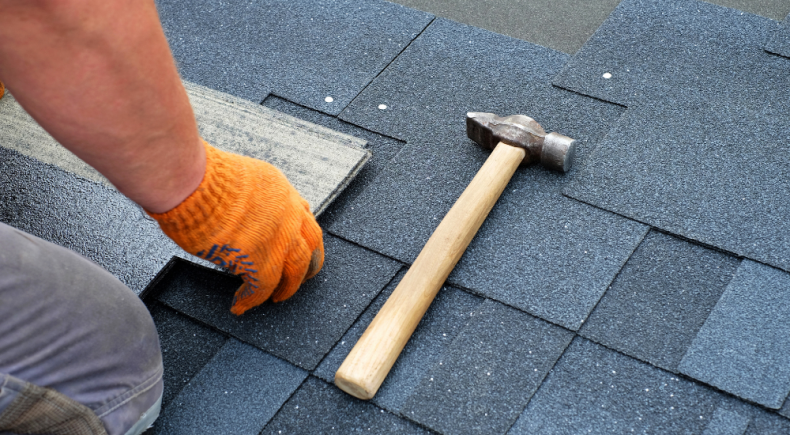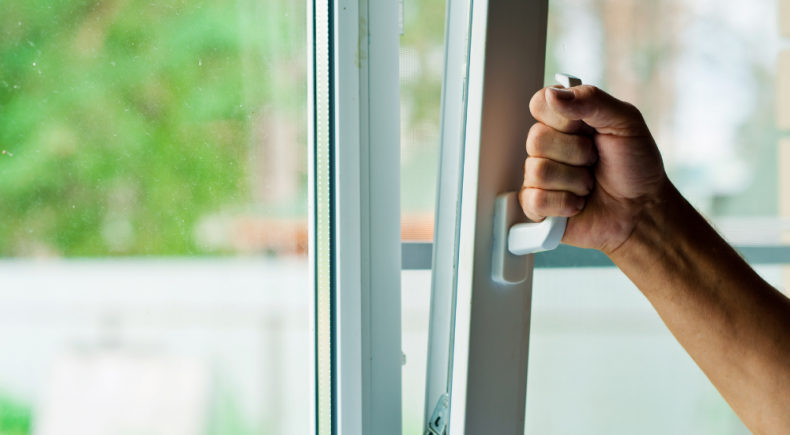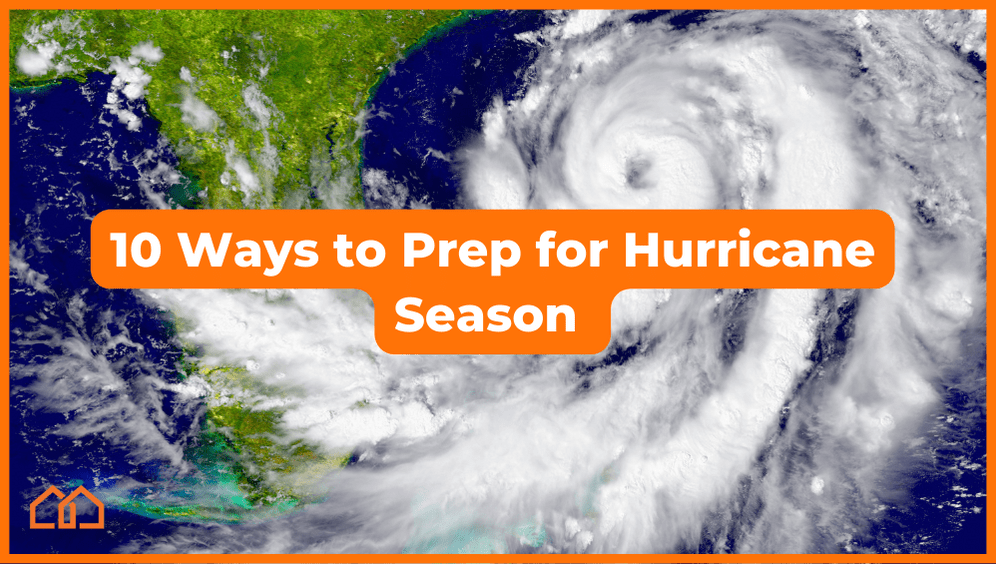With the hurricane season underway, you want to make sure your new home is well protected and ready to brave the high winds and torrential downpour that comes your way. Your new construction home may already be covered to a certain degree against hurricanes if you live in a hurricane-prone area. However, there are still steps you can take in addition to make sure you and your home are fully prepared for anything that heads your way. Here are our ten ways you can prepare yourself and your home for the hurricane season.
1. Inspect your house for any previous damages
Depending on where you live, your new home may already come with features to protect your home from certain hurricane damages. If you are unsure, check with your builders to see what has been added. Usually, builders will reinforce the foundation, walls, and roof if you live in hurricane-prone areas.
If you’ve lived in your new home for over a year, it’s still a good idea to take a quick peek at your roof before a hurricane heads in your direction. The chances are that your roof is still in excellent condition, but you want to double-check that there aren’t any cracked or missing shingles or tiles or any gaps for water to slip through. If your house has hurricane shutters, make sure they’re working correctly, and there aren’t any signs of damages such as corrosion or cracks. You should do the same with your windows – make sure there aren’t any gaps or cracks.
2. Review your insurances
If you’ve forgotten about what’s covered in your homeowner’s insurance, now is the time to review your information and think about whether or not you need to add a few things, such as flood insurance. Most homeowner’s insurances will cover some costs of repairing damages caused by a natural disaster. However, you may want to prepare for the worst, especially if your home is in an area where hurricanes are frequent. You may also want to consider getting insurance to cover the cost of rebuilding your home if you lose it during the storm. Most people insure their current home’s value; however, building a new home can sometimes cost more depending on prices for materials and labor. We also recommend taking a quick inventory of your belongings and knowing your belongings’ value, so you can give your insurance company an accurate list of what needs to be replaced if any of your belongings are damaged.

3. Add roof straps
Your home may already have roof straps (sometimes called hurricane straps) installed. Roof straps are exactly what they sound like – they strap your roof to the walls of your homes and prevent them from flying off. Most roofs on homes rely on gravity to keep them in place; however, your roof can fly off during hurricanes without roof straps.
4. Remove area debris and clean your gutters
Do the best you can to remove any potential projectiles that can cause damage to your home during a hurricane. That means removing any patio furniture or outdoor decorations. We also strongly recommend pruning any low-hanging branches on your trees to decrease the chance of those branches damaging your house during the storm.
Check and clean your gutters and drains. You want to make sure any rain that falls on your house can drain away effectively to prevent as much flooding as you can.
5. Seal holes, windows, and doors
Check the seals around your windows and doors and make sure there aren’t any holes in the sides of your home. Hot and windy weather can damage the seals around your windows and doors over time, but luckily they can be fixed and replaced pretty quickly and inexpensively. If you find holes in the sides of your home, you can buy caulk and seal those up.

6. Reinforce your garage doors and windows
Garage doors can often be blown in or damaged by flying debris. So you’ll want to reinforce your garage doors with a reinforcement brace and wooden beams. As for your windows, you’ll want to do something similar to make sure they don’t let water in, and that glass doesn’t come into your home if something breaks your window. If you don’t have hurricane shutters installed, you can opt for special tape and films to prevent the glass from shattering completely and board up your windows with plywood for extra protection against the high winds.
7. Protect your AC unit
Small flying debris such as branches can lodge themselves in your AC unit during a hurricane and cause a pricey repair. We recommend getting a manufacturer-approved AC unit protector. Yes, these will cost more than your DIY tarp cover. But, if your AC unit becomes damaged and you used a DIY cover, this could void your warranty on it while also trapping moisture inside and cause more damage. It’s also important to note that you should not be running your AC while your outdoor unit is covered.
8. Install surge protection and unplug things you don’t need
A power surge can damage your appliances and electronics. Your personal property coverage may cover some of the damages if something like this happens, but you still want to prevent as much damage as you can. For your big appliances, such as the fridge or stove, it may be hard to unplug them, so we recommend installing surge protectors. For other smaller appliances or electronics such as your coffee maker, toaster, TV, or computer, we strongly urge that you take the time to unplug them.
9. Ensure that your carbon monoxide detector and fire alarms have batteries
The CDC recommends checking that both your carbon monoxide detectors and fire alarms are working and have new batteries in preparation for a hurricane. Carbon monoxide is colorless, odorless, and tasteless. Having working detectors during and after a storm can be crucial to ensure that you and your family are safe if carbon monoxide levels in your home increase. Fuel-burning sources such as fireplaces, furnaces, grills, water heaters, and ovens and can become damaged during a storm. Working fire alarms are also essential to ensure that you are aware and know that you have to evacuate in the event of an electrical fire.
10. Write your emergency contacts down on paper and have an emergency evacuation plan.
In any big storm, losing electricity and wi-fi can be a common occurrence. Expect that you will likely lose electricity during a hurricane and may not be able to look up any emergency contact information. You may not be able to watch the news to keep track of the storm and learn whether or not you need to evacuate. You should never ignore an evacuation order. Although our phones now have cellular data and long battery life, consider purchasing a small emergency radio that runs on batteries so you can stay updated with the local news even when the electricity and wifi are out.
Preparing ahead of time for hurricane season can take a lot of the stress away. You don’t want to be scrambling around when a storm is fast approaching. Whether you’ve lived in a hurricane-prone area before or this is your first time, preparing can be stressful. There are a lot of things you have to do for your home on top of making sure you have enough food and water and a family emergency plan. You can protect yourself and your home in many ways during a hurricane, however, your own safety is more important than your home or your belongings. If an evacuation order has been issued, we cannot urge you enough to follow your local orders and evacuation plans.

